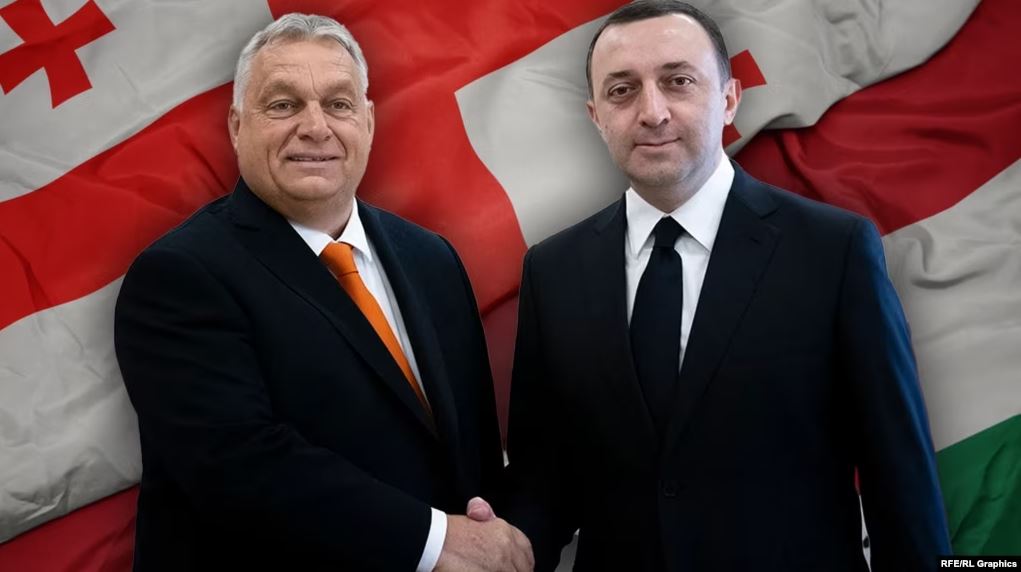
By ISSG with agencies
The Hungarian Prime Minister, Viktor Orban, recently visited Georgia in a show of support, sparking concerns about the impact of Hungary’s influence on Georgia’s aspirations to join the European Union (EU).
Orban’s two-day visit on October 11 and 12 marked the strengthening of a partnership between Hungary and Georgia. He has notably formed a close relationship with Georgia’s Prime Minister, Irakli Garibashvili. Both leaders have increasingly emphasized social conservatism, embracing the idea of a European identity based on Christianity and traditional values, while diverting from the conventional European emphasis on liberalism and democracy.
Georgia and Hungary signed a strategic partnership agreement last year, and Garibashvili was a keynote speaker at the Budapest edition of the Conservative Political Action Conference (CPAC) in the spring, an event with a right-wing focus.
Georgia has also followed Hungary’s political example, seeking to exert more control over nominally independent institutions like the judiciary and state cultural bodies, adopting a Kyiv-skeptic stance on the Russia-Ukraine war, and introducing a “foreign agent” law similar to Hungary’s.
Some analysts have likened Georgia’s domestic and foreign policy changes to “the Orbanizing of Georgia,” comparing it to the path taken by countries like Azerbaijan and Turkey in adopting increasingly illiberal policies.
Georgia applied for EU candidate status, along with Ukraine and Moldova, after Russia’s 2022 invasion of Ukraine. While Ukraine and Moldova were granted candidate status in June 2022, Georgia received an EU “perspective” with a list of recommended reforms. The EU expects Georgia to address issues such as political polarization and judicial independence.
Orban has criticized the EU’s decision to slow down Georgia’s EU candidacy. Hungary’s use of veto power in the EU on various political issues, particularly related to Ukraine, has led to speculation that Hungary could seek Georgia’s EU candidate status as part of a quid pro quo agreement.
Many in Georgia argue that the government’s efforts to fulfill the EU’s demands have been insufficient, which has raised concerns about the country’s commitment to a Euro-Atlantic orientation. The European Commission is set to release an annual enlargement report at the end of October, including an assessment of Georgia’s progress.
Orban’s interest in Georgia’s EU aspirations may be driven by his desire to strengthen illiberal forces within the EU. His support for illiberal states in the EU aligns with his goal to “use Georgia as a bargaining chip to blackmail the EU and increase Hungary’s leverage over the decision-making process.”
While the current leaders of Hungary and Georgia have developed a strong personal relationship, Orban’s interest in Georgia dates back to the previous regime of President Mikheil Saakashvili. Some officials from Saakashvili’s administration sought refuge in Hungary when Georgian Dream came to power.
Economic interests also play a role in Hungary’s support for Georgia. The two countries are involved in an ambitious project to construct an electricity cable under the Black Sea to transmit power from Azerbaijan through Georgia, Romania, and Hungary. This project aims to reduce Europe’s dependence on Russian energy.
Although concerns exist about strengthening an “authoritarian axis,” the EU’s involvement in the project legitimizes this axis and benefits various stakeholders.
As Georgia awaits the EU’s decision on its candidacy, Hungary’s influence on the process raises questions about the future of Georgia’s EU aspirations and its alignment with illiberal forces within the EU.
The International Studies of Strategic and Geopolitics (ISSG) is a not-for-profit policy research organization dedicated to studying the world’s greatest challenges.
